The current rage in Indian archaeology is foreign collaboration. One of the reasons why this has become popular is that it imposes no intellectual and logistical burden on the Indian collaborator. The problems of the necessary fund and the research strategy are sorted out mostly by the foreign collaborators who also work subsequently on the excavated and explored archaeological materials . When the final report is published, that no doubt bears the name of the Indian collaborator but the fellow professionals know that the whole thing is basically written up by the team of the foreign collaborator. From the Indian point of view, this is a good arrangement in which the Indian team has nothing to do except organizing the government permission and other logistics of the work at the site. For some members of the Indian team, this also opens the doors of foreign visits and participation in foreign conferences. According to available information, the University Grants Commission (UGC) also lays stress on foreign collaborations, attaching more value to publications in foreign journals than in the Indian ones. If true, this is a good case of the Indian academia admitting that it is inferior to the academia abroad. The Ph.D dissertations which occasionally result from such collaborations are prepared mostly by students of the foreign team. The Indian universities which have been very enthusiastic about such collaborations in recent years are Deccan College, Pune, MS University of Baroda, Banaras Hindu University and Dharwar University.
On the surface, there is nothing objectionable about this scenario. International collaborations are supposedly good things by themselves, and when the collaborators on both sides are on the same academic level, certain good things are bound to accrue from intellectual exchanges. However, the situation is seldom as simple and straightforward as this.
We must note in the beginning that archaeological studies are not scientifically as rigorous as the enquiries in the natural sciences. Here knowledge can seldom be conclusive and the position an individual researcher may take in relation to the field of enquiry as a whole depends on his own bias and predilections. . For instance, there was a time in the 1950s and 1960s when it was taken for granted that the use of iron in India came from West Asia, whereas on the basis of the same set of data it was possible to argue somewhat later that there was adequate reason to believe that India was a major and an independent centre of iron metallurgy.
Secondly, there is also a thing called ‘the politics of the past’. In 1986 there was an archaeological conference in Southampton and when it was decided not to keep it open to the archaeologists from the apartheid regime of South Africa, there was a storm of protest in the name of the freedom of science. Eventually the anti-apartheid group won the debate and the first World Archaeological Conference held in 1986 at Southampton was held without representation from the apartheid regime of South Africa. This controversy made the archaeological world feel strongly about what may be called the politics of the past.
Thirdly, this sense of the politics of the past does not flourish in a vacuum. If we have to bring back our mind to the Indian past, we realize that the knowledge of the Indian past has been historically controlled by Western scholars. The situation remains more or less unchanged even now. Quite recently, the Chairman of the Kerala Council of Historical Research, who is involved in the excavations of a Roman contact site called Muziris (identified with the site of Pattinam in Kerala), managed to draw collaboration from Oxford University. Interestingly, he took a lot of pride in the fact that no less a site than Oxford considered the site important enough for attention and him personally worthy of collaboration. To be fair to him, a senior and much-respected Indian archaeologist once claimed that for India the sun of civilization always rose in the West! This may be a bizarre academic opinion but examples of such opinions are common in Indian archaeology and underline the inordinate reverence of Indian archaeologists on what the relevant Western scholars claim regarding the Indian past. The Indians who get upset by Dina Nath Batra’s opinion in certain matters of ancient Indian science and technology may remember that the positive achievements of ancient Indian science and technology have scarcely received the attention it deserves mainly because of the restraining elements of Western scholars and their Indian devotees.
This brings us to the question of national security which is concerned with a host of issues, not the least of which is the nation’s concept of its past. A nation which has a strong sense of identity and is respectful of its past does not depend on sundry foreign collaborations for objective research on, and interpretation of, its past. It is not in the interest of any foreign group to be rigorously objective about India’s ancient past..
If one is distressed by this statement, it is possible to cite a host of recent disputes about various features of ancient Indian history. Some of these disputes have assumed sharply unpleasant character in recent years. We may draw attention to the ongoing controversies about the Indus civilization. Although on the basis of the current evidence, it is virtually impossible to deny that the growth of this civilization was due to any influence from outside. But what is being aired currently is that this growth was a part of the growth which was taking place at the same time in west and central Asia. This theory tries to quietly undermine the originality of the Indus civilization. In fact, over the years some Western archaeologists have been particularly active in trying to bring about precisely this. It is worth emphasizing that there is a strong pressure from interested groups to hand over some major Indus sites to foreign money and foreign participants. The recent excavations at Rakhigarhi by the Deccan College, Pune, with money from an American NGO called Global Heritage Fund is a suitable case in point. The approving agency is the Archaeological Survey of India which is under the Ministry of Culture of the Government of India.
In recent years, many Indian archaeologists have come round to the opinion that the Indus civilization is most likely to be a part of the Vedic stream and is thus the fountainhead of Indian culture and religion. To a large section of foreign archaeologists this is anathema and the study of the Indus civilization is riddled with political controversies of all kinds. To allow this field of study, which is a crucial segment of our ancient past, to manipulations of all kinds by foreign groups and their Indian collaborators is not something which bears the question of India’s ideological security and civilizational confidence in mind.
Another dangerous development is taking place in attempts to relate prehistoric Indian cultures to various Indian languages.. What will happen is that these language groups will be given fictional linguistic affinities, making the field wide open for regional chauvinistic premises. The Deccan College archaeological group is in the forefront of this endeavour but in the background one detects the money and influence of a Japanese and an American group.
What I have tried to argue is that the pursuit of the past is not an innocuous academic activity and before foreign academic groups are allowed uncontrolled and unverified entry to this in India, we must be aware of the dimensions which impinge on our long-term national security. It will not simply do to forget that major premises regarding the nation’s past cannot be allowed to be controlled by foreign groups. Government interventions are very important in this regard.
Published in Vivek: Issues & Options, September - October 2014
(Disclaimer: The views and opinions expressed in this article are those of the author and do not necessarily reflect the official policy or position of the Vivekananda International Foundation)

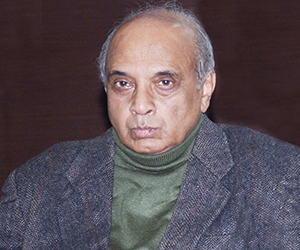
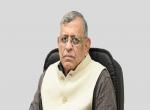
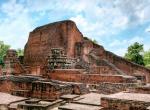

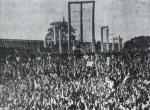
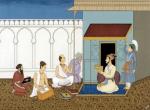
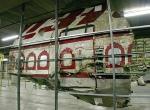

Post new comment